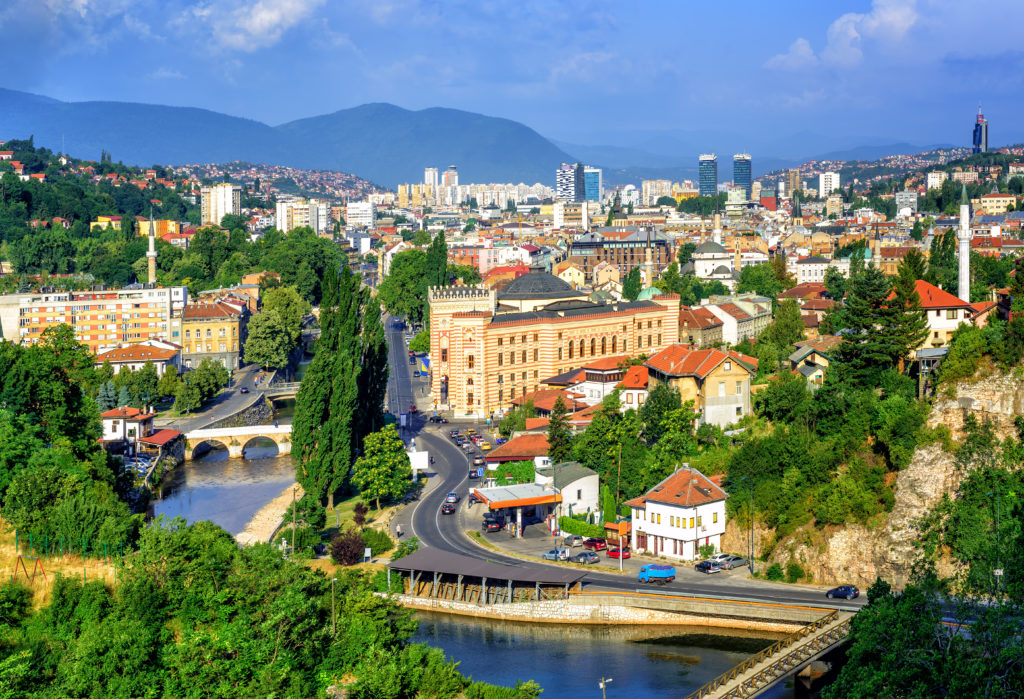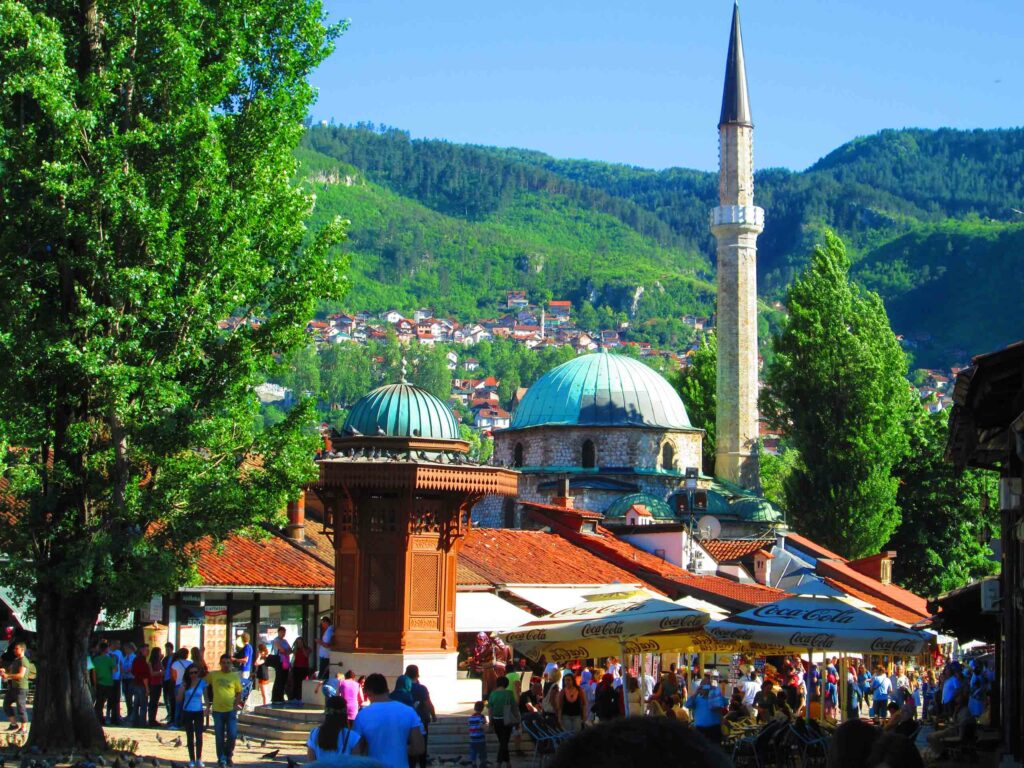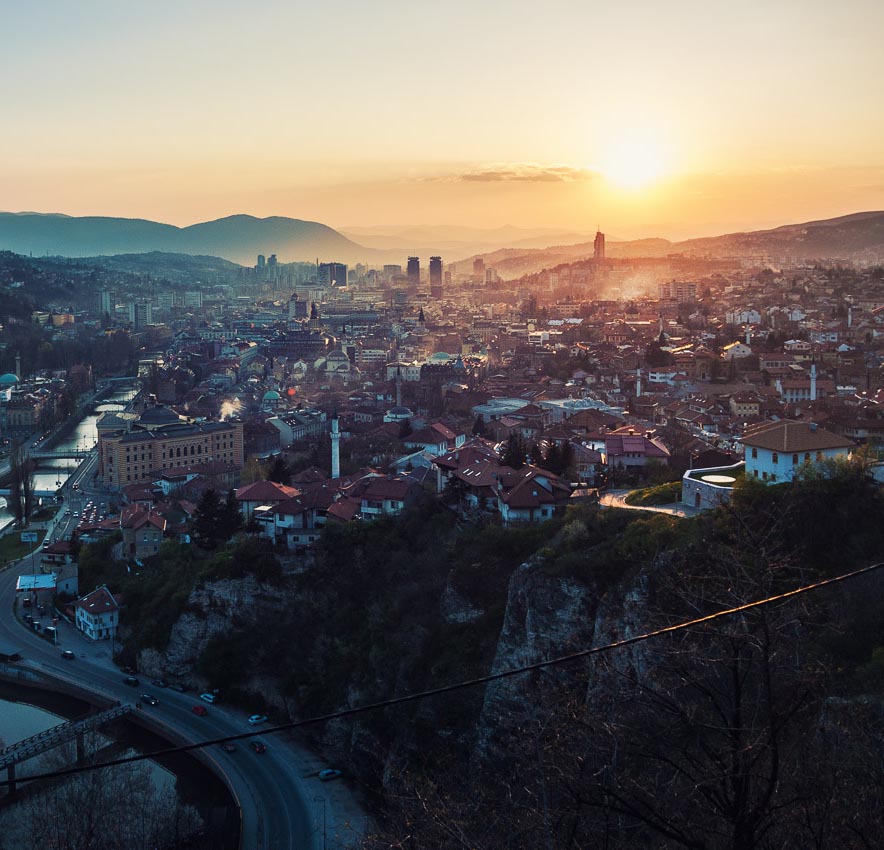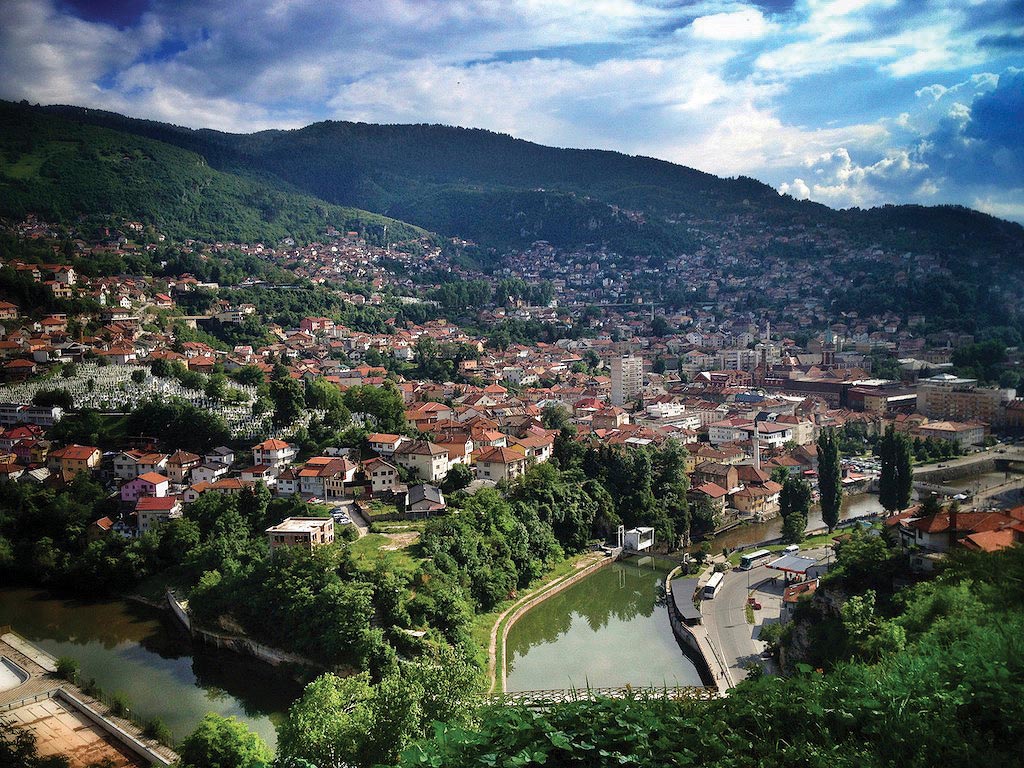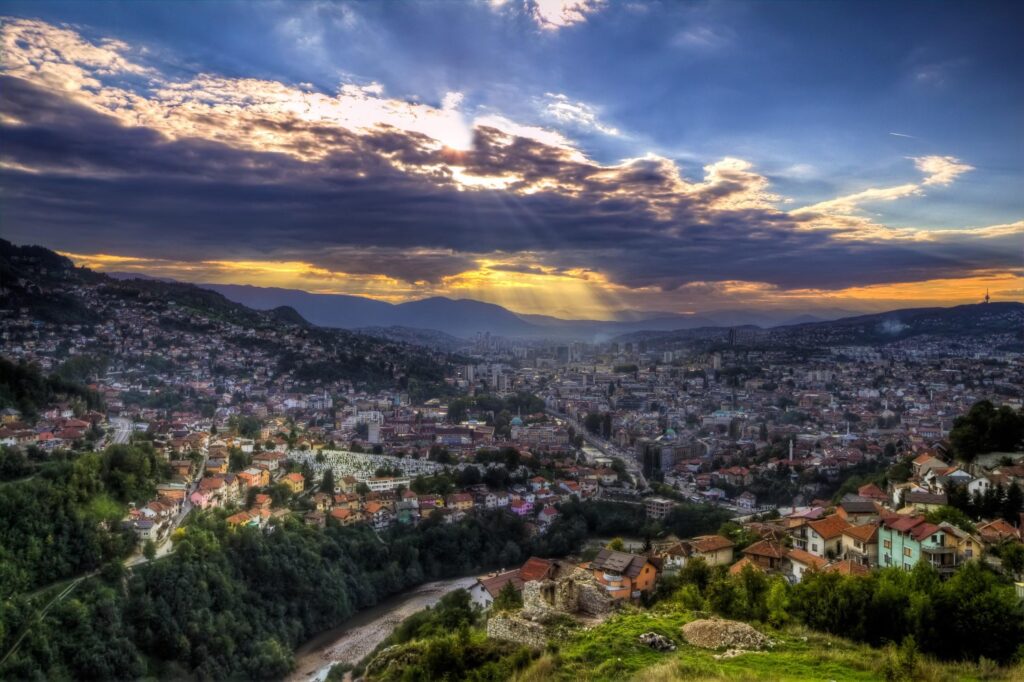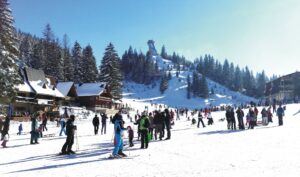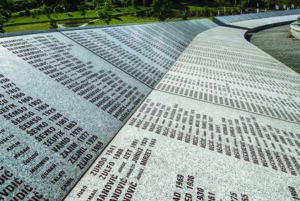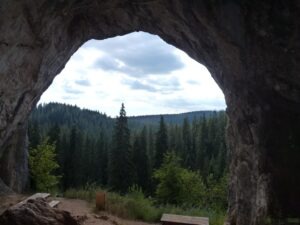Sarajevo, the capital of mountain-rugged Bosnia and Herzegovina, is a charming city reflecting perfect symbiosis of the past and the modern, a bridge between the East and the West. The city itself was established in the 15th century, but dates back to the Neolithic period and ever since it has symbolized the melting pot of various cultures and religions. Indeed, along only a street you will come across a mosque, a synagogue, an orthodox and a catholic church. But the blend continues to more than sacral monuments and the city arrests Ottoman, Austro-Hungarian, Socialist and other architectural styles. Sarajevo did become a symbol of the coexistence of communities from different cultural, ethnic and religious backgrounds.
This is a place where World War I commenced with the assassination of Franz Ferdinand, the Austro-Hungarian heir to the throne, his wife Sophie and their unborn child on June 28th, 1914.
This is the first socialist country to host the Winter Olympic Games in 1984. The natural resources of the surrounding mountains – Jahorina, Bjelasnica, Igman and Trebevic, as well as the hospitality and sports spirit of Sarajevans helped the city break a record by presenting the largest Winter Olympic Games of its time. This triumphal event featured 49 nations and over a thousand participants. Sarajevo was awarded the gold medal for the organization due to the hospitality of people.
The cultural and Olympic spirit of the city was shaken by the longest city siege in the history of modern warfare – 1452 day long siege of the 1992 – 1995 war in Bosnia and Herzegovina. The city however survived and continues to grow and rebuilds itself to once again symbolize the city of different cultures, the city of sports and festivals, the city of friendship and hope.

